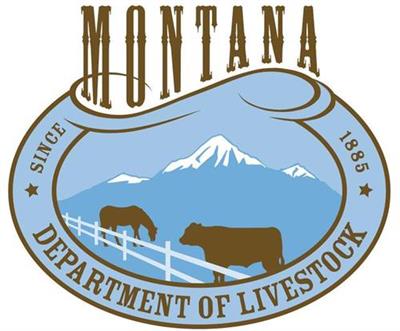On Thursday, October 24, the Montana Department of Livestock (MDOL) confirmed Highly Pathogenic Avian Influenza (HPAI) in a Flathead County backyard flock. This is Montana’s 25th detection linked to the ongoing national HPAI outbreak which began in early 2022. The last confirmed HPAI infection in Montana was January 2024.
HPAI is spread from migratory waterfowl and infections in domestic poultry follow the spring and fall migrations. Poultry producers should be practicing good biosecurity to minimize the risk of disease spread, including not keeping bird feeders near domestic poultry. Poultry may become infected through direct contact with infected wild birds, or through contact with contaminated objects, equipment, or the environment. Sick and dead waterfowl were present on wetlands adjacent to the Flathead County property.
“With the fall migration of waterfowl underway and the detection of HPAI in Montana and other Pacific Northwest States, the risk of disease to domestic poultry has returned despite several months without a detection,” said Tahnee Szymanski, State Veterinarian.
Poultry producers should report sudden onset of illness or high death loss in domestic poultry to their local veterinarian or MDOL at (406/444-2976). If you find sick or dead wild birds that have died from unknown causes, please contact the FWP regional office in Kalispell at 406-752-5501 or call the FWP wildlife veterinarian (406-577-7880).
Avian influenza is an infectious viral disease of birds that can cause high mortality rates in domestic flocks. Sick birds can exhibit numerous signs such as swollen eyes, discolored comb and legs, or a significant drop in egg production or water and feed consumption. However, the most consistent presentation has been sudden death.
While HPAI is considered a potentially zoonotic disease and human cases have been reported nationally, the CDC continues to consider the public health risk from the virus to be low. Public health recommends wearing gloves when handling sick or dead poultry and washing hands thoroughly after contact with birds.
Bird hunters should follow simple precautions when processing or handling wild game, including
- Do not harvest or handle wild birds that are obviously sick or found dead.
- Wear disposable latex or rubber gloves while cleaning game or cleaning bird feeders.
- Do not eat, drink, or smoke while cleaning game.
- Wash hands with soap and water or alcohol wipes immediately after handling game or cleaning bird feeders.
- Wash tools and work surfaces used to clean game birds with soap and water, then disinfect with a 10 percent solution of chlorine bleach—one part chlorine bleach to 10 parts water.
- Separate raw meat, and anything it touches, from cooked or ready-to-eat foods to avoid contamination.
- Cook game meat thoroughly to an internal temperature of at least 165°F.
HPAI has also been detected in dairy herds in multiple states. The strain of virus circulating in dairy cattle is distinct from the strain circulating in wild birds. The Flathead County premises is being attributed to transmission from wild birds, but additional testing is needed to confirm this.
HPAI is not a food safety concern. Existing safeguards to keep food safe and wholesome are sufficient to protect people, and the food supply in the United States is one of the safest in the world. As a reminder, the US Department of Agriculture recommends cooking poultry to 165 degrees Fahrenheit.
The mission of the Montana Department of Livestock is to control and eradicate animal diseases, prevent the transmission of animal diseases to humans, and to protect the livestock industry from theft and predatory animals. For more information on the Montana Department of Livestock, visit www.liv.mt.gov.
####
MT Dept. of Livestock – 2024


